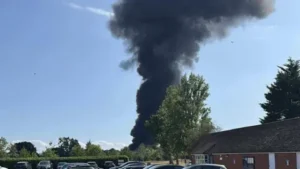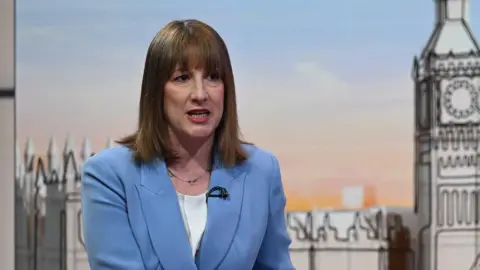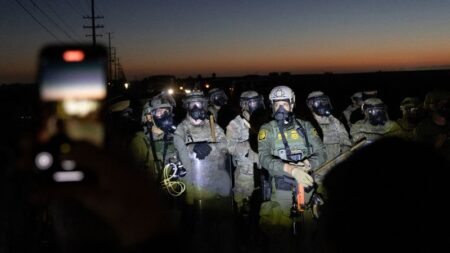In a recent address, Rachel Reeves, the Chancellor of the Exchequer, made emphatic statements regarding the concerns of victims involved in grooming gang cases. During her appearance on the BBC’s “Sunday with Laura Kuenssberg,” she asserted that the government had never disregarded the worries expressed by these victims. Instead, she highlighted that the administration is now responding to these pressing issues by launching a national inquiry into grooming gangs—an initiative that arose after sustained calls from advocacy groups and critics alike.
The context of Reeves’ statements was underscored by various criticisms aimed at Prime Minister Sir Keir Starmer. His reluctance to initiate a national inquiry into grooming gangs has been a focal point of contention, particularly from the Conservative Party, which claimed that Starmer’s eventual decision to proceed with the inquiry was a response to political pressure—essentially a U-turn from his previous stance. Former police detective Maggie Oliver echoed these sentiments, suggesting that both major political parties, Labour and Conservative, had been unwilling to address the grooming gang crisis until they were compelled to do so.
As the situation escalated, it became clear that Sr. Keir Starmer had reversed his position, formally announcing a national inquiry following an independent report on child sexual exploitation by Baroness Louise Casey. This report, which is expected to be unveiled soon, targets the systemic failures that allowed such abuses to occur unchecked across England and Wales. Starmer has been under scrutiny not only for his initial inaction but also for the handling of past inquiries, such as the seven-year investigation led by Professor Alexis Jay, which revealed alarming levels of child sexual abuse.
Reeves defended Starmer’s new direction by emphasizing that the concerns of victims have always been paramount to the discussions and actions of the government. According to her, the Prime Minister’s focus has shifted to practical steps intended to prevent a recurrence of such tragedy, driven by the insights from Casey’s rapid review. She insisted that the previous efforts to incorporate recommendations from Jay’s review were steps in the right direction, thus laying the groundwork for more comprehensive reforms needed to tackle the grooming gang issue.
However, critique remains prevalent from those directly affected by these issues. Maggie Oliver remarked on the “important step” represented by the inquiry, but insisted that neither Labour nor Conservative can expect gratitude from the victims due to their previous negligence. Oliver’s understanding is grounded in firsthand experience of the ramifications of government inaction. She conveyed a sense of contempt towards both parties, arguing that both have failed society’s most vulnerable by neglecting systematic abuses that have persisted due to institutional complacency.
Meanwhile, the shadow chancellor Sir Mel Stride has been vocal about his belief that the inquiry should have been initiated much sooner, claiming that the Conservatives had been advocating for it for quite some time. He criticized Starmer for previously dismissing discussions around grooming gangs, indicating a political misstep that showcased a disregard for urgent matters affecting citizens.
Other organizations, such as the National Society for the Prevention of Cruelty to Children (NSPCC), have welcomed the decision to launch an inquiry. Their Chief Executive Chris Sherwood articulated that while the acceptance of inner recommendations from Casey’s report was a positive development, it was critical to address ongoing child sexual abuse cases without delay. He pointed out that survivors had endured extensive waiting periods for the implementation of preventative measures recommended in earlier reports.
In conclusion, the British government, confronted with intense scrutiny and rising public pressure, has embarked on an inquiry into grooming gangs. It is a pivotal moment in addressing concerns that have long overshadowed national discussions on child safety and welfare. The reconciliation of victims’ voices with the actions of policymakers remains a daunting yet essential task on this journey towards justice and accountability. The challenges ahead will require not only rigorous inquiry but also genuine commitment to systemic change informed by the painful experiences of those affected.










